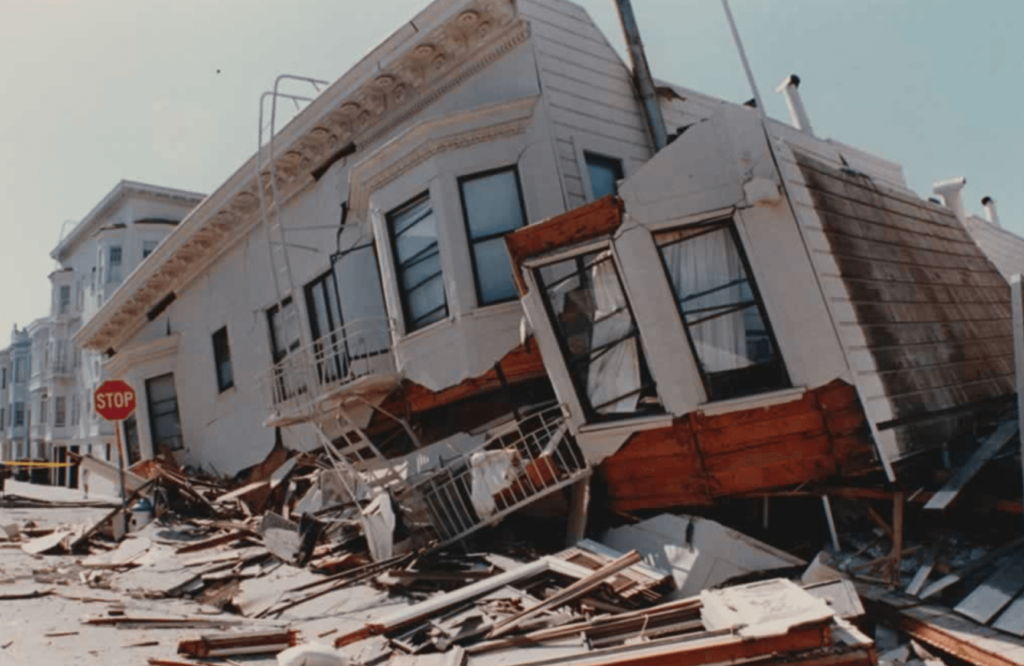Do I need earthquake insurance? If so, how much?

Many people buy earthquake insurance after an earthquake. In fact, unless you live on the shaking ground of California, few people buy earthquake insurance at all. Before deciding not to buy an earthquake policy you need to understand that your homeowners policy will not cover damage from an earthquake.
September is national preparedness month. Through the month of September, we’re writing about a variety of insurance types. Each post will share information that helps you make sure you have the protection they need, at a fair price.
Why should consumers buy earthquake insurance?
Most homeowners insurance policies do not cover earthquakes. Nevertheless, earthquakes often cause significant damage to property. This may lead you to ask, why aren’t they covered. Here’s why. Earthquakes are very specific in where they occur. Only people in those areas need the insurance, not everyone. Therefore, having earthquake insurance as a separate type of coverage makes sense.
It’s important for consumers to consider how they would manage the costs of recovering from an earthquake should they be impacted. For example, can they afford to repair or rebuild and how likely is the home or business to be seriously damaged? Brick homes, wood-frame homes with crawl spaces and multi-story homes are the most likely to suffer serious damage from an earthquake. Consumers should also know that most companies won’t sell new earthquake insurance policies for 30-60 days after a quake due to the expectation of aftershocks.
How can consumers purchase earthquake coverage?
An earthquake endorsement can be added to home insurance policies, although not every insurance company offers earthquake coverage. Earthquake insurance is also available as a stand-alone policy independent of homeowners insurance.
What does earthquake insurance cover?
An earthquake insurance policy covers home repairs needed due to earthquake damage and personal property directly damaged by an earthquake. It might cover increased costs of repair to meet current building codes and costs to stabilize the land beneath structures. It pays extra living expenses while the home is under repair and covers the cost of debris removal.
An earthquake policy typically does not cover damage to lot or land, such as sinkholes. Earthquake insurance also does not protect vehicles and won’t cover the cost of external water damage. Some insurance companies do not cover the replacement of masonry veneer – brick, rock or stone that covers the outside of the home. Be prepared to clearly explain what will and will not be covered for your clients.
How much coverage should be bought and how much does it cost?
The price of adding earthquake coverage depends on the likelihood of an earthquake in your area. In areas where earthquakes are unlikely the cost should only be a small percentage of the cost of the underlying homeowners policy.
Homeowners decide how much insurance they want to purchase for both the structure and contents. The right coverage value will depend on how much of the repair and replacement costs can be paid out-of-pocket should the consumer suffer a total loss. Earthquake policies vary in cost depending on multiple factors, including the desired level of coverage and deductible amount. Property location, age and construction type also impact earthquake insurance rates
Insuring a home for just its appraisal or loan value could mean that in the event of an earthquake, there will only be enough coverage to repay the mortgage lender and not enough to repair the home. Additionally, it is important to make consumers aware of insurance policy limits of coverage. Often within these limits are sub-limits on specific items, such as a $50,000 limit on personal property replacement with a $5,000 sub-limit on computers and peripherals.
Three Tips to Use When Shopping for Insurance
Start by knowing how good your current insurance company is. If they’re not good, it doesn’t matter what the price is, don’t buy from that company.
Next, if you are with a good insurance company, find out if you’re getting a fair price. Price should vary with quality. However, in insurance it’s coming that the lowest quality products are price high so consumers will think they’re good. Just click the button below to find what’s a fair price for your homeowners insurance.
Finally, if your insurance company failed the quality test or the price test, it’s time to shop. We make shopping easy by listing the best insurance companies in each state.
About ValChoice Ratings
ValChoice rates every car and home insurance company. Ratings are based on data filed with state departments of insurance. Data collected by state insurance departments is important for two reasons: 1) The data is high quality. 2) ValChoice does not depend on data provided by insurance companies to rate them.
About Dan Karr
Dan has been a CEO or Vice President for high-technology companies for over 20 years. While working as a Senior Vice President of Marketing and Sales for a technology company, Dan was seriously injured while commuting to work. After dealing with trying to get insurance companies to pay his significant medical bills, or to settle a claim so Dan could pay the medical bills, he became intimately aware of the complexity of insurance claims. Dan founded ValChoice to pay forward his experience by bringing consumers, insurance agents and financial advisors easy-to-understand analysis needed to know which insurance companies provide the best price, protection — claims handling — and service.







